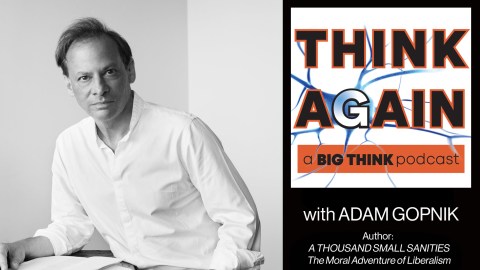Adam Gopnik on the rhinoceros of liberalism vs. the unicorns of everything else

- Liberalism as “radical pragmatism”
- Intersectionality and civic discourse
- How “a thousand small sanities” tackled drunk driving, normalized gay marriage, and could control gun violence
If I had to choose one word to capture this moment in American (and maybe world) history, “patience” wouldn’t be it.
From every direction, everything demands our urgent attention. Everything is a ticking time bomb, or one that’s just exploded, and we’re all the poorly-trained volunteer ambulance squad. I don’t mean to dismiss the challenges we face: climate change, families being ripped apart while seeking asylum, a school shooting every other week, just to name a few. These are very real. Very urgent indeed. But in fight-or-flight mode, we make drastic, either/or decisions. We forget, as my guest today would have it, how to count to two.
He’s New Yorker writer Adam Gopnik, and he’s the author of the new book A THOUSAND SMALL SANITIES: the Moral Adventure of Liberalism. It’s a surprising and surprisingly necessary book at this cultural moment. And it’s willing to look awkward and uncool in the eyes of Gopnik’s teenaged daughter and her generation by defending good old fashioned, pluralistic, humanistic Liberalism. Liberalism, as Gopnik puts it, is more of a rhinoceros than a unicorn—a creature of evolutionary compromise that’s not always pretty to look at. But put a saddle on it, he argues, and it gets you more or less where you need to go.
Surprise conversation starters in this episode:
Kurt Andersen on the gun control debate





